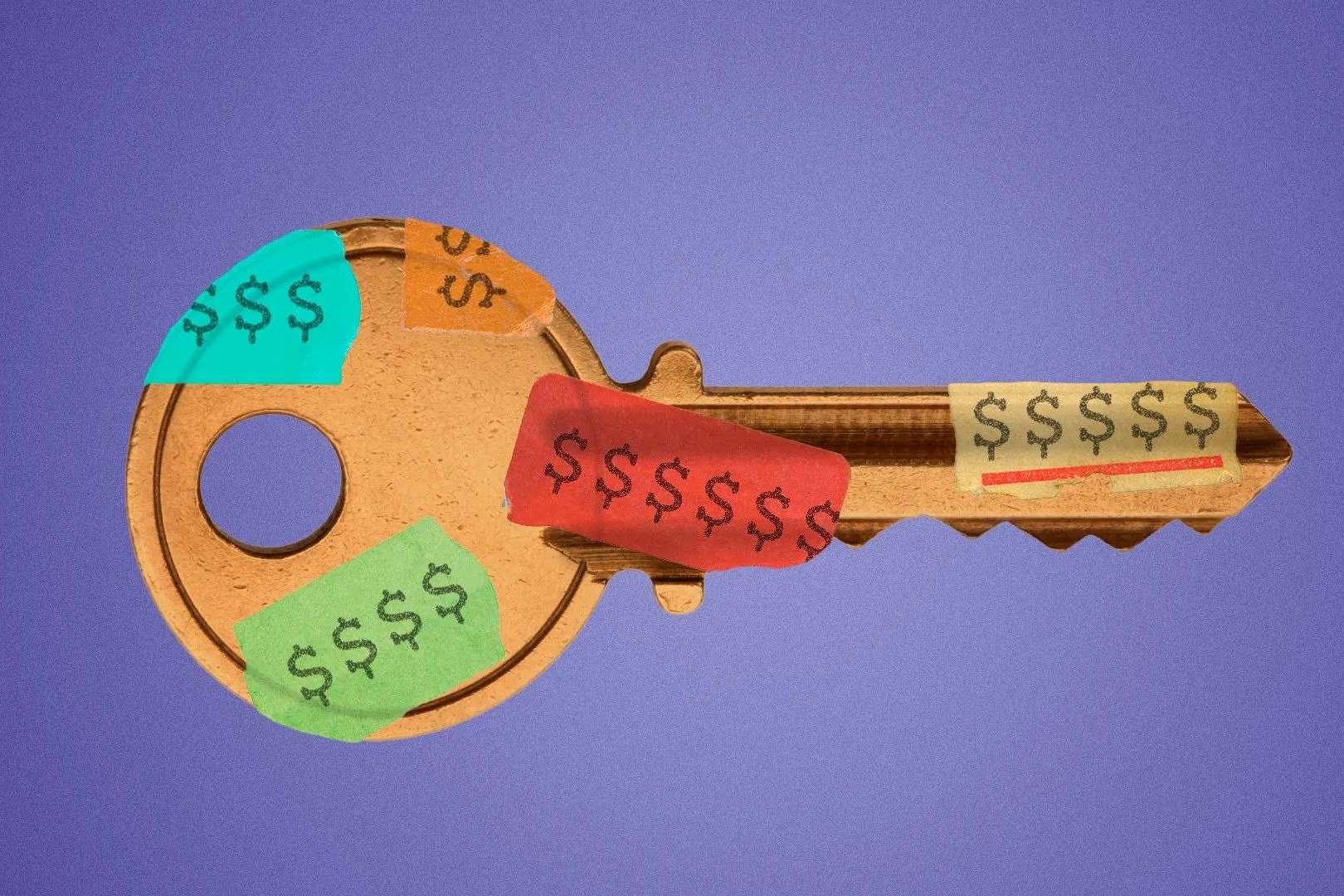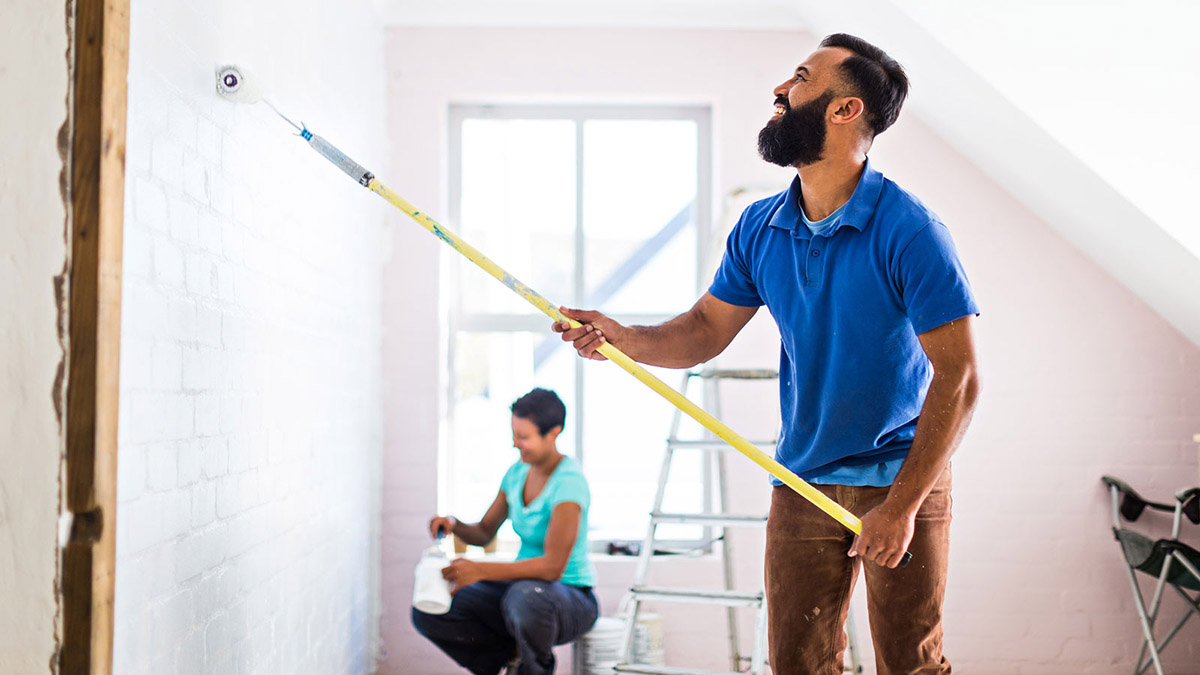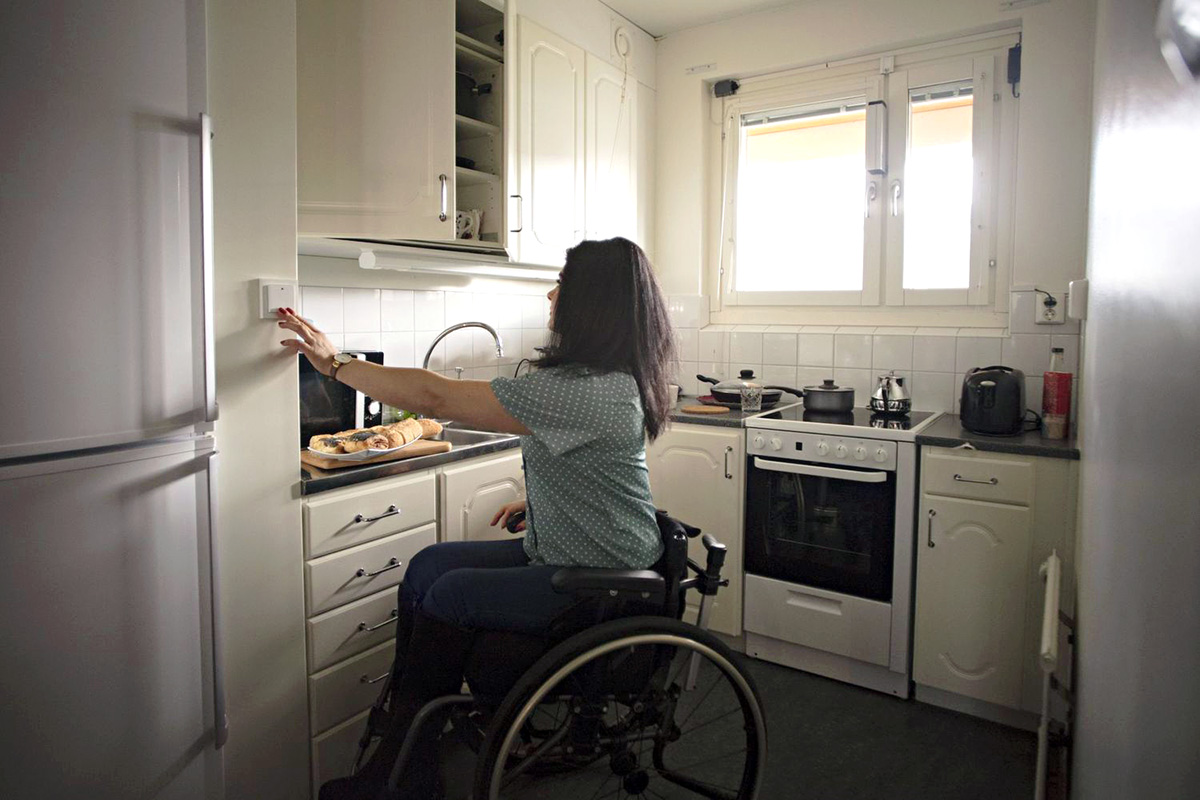Home>Renovation & DIY>Home Renovation Guides>When Do I Charge Sales Tax For Home Improvements?


Home Renovation Guides
When Do I Charge Sales Tax For Home Improvements?
Modified: January 4, 2024
Learn when to charge sales tax for home renovations with our comprehensive home renovation guides. Understand the tax implications to avoid any surprises.
(Many of the links in this article redirect to a specific reviewed product. Your purchase of these products through affiliate links helps to generate commission for Storables.com, at no extra cost. Learn more)
**
Introduction
**
When it comes to home improvements, there are numerous factors to consider, and one of the often-overlooked aspects is sales tax. Understanding when to charge sales tax for home improvements is crucial for both homeowners and contractors. It not only ensures compliance with tax regulations but also plays a significant role in budgeting for the project.
Navigating the intricacies of sales tax can be daunting, especially in the realm of home renovation projects where the lines between materials, labor, and services can blur. However, with the right knowledge and guidance, homeowners and contractors can confidently navigate the complexities of sales tax in the context of home improvements.
In this comprehensive guide, we will delve into the nuances of sales tax as it pertains to home improvement services. By shedding light on when sales tax should be charged, understanding sales tax exemptions, and addressing out-of-state sales tax considerations, this guide aims to provide clarity and empower both homeowners and contractors to make informed decisions.
Let's embark on this enlightening journey to demystify the realm of sales tax for home improvements, equipping you with the knowledge to navigate this aspect of your project with confidence and clarity.
Key Takeaways:
- Sales tax for home improvements varies by state and can apply to materials, labor, and services. Understanding exemptions and out-of-state considerations is crucial for homeowners and contractors to manage project costs effectively.
- Energy-efficient upgrades and accessibility modifications may qualify for sales tax exemptions in home improvement projects. Navigating out-of-state sales tax complexities is essential for compliance and financial prudence.
Understanding Sales Tax
Before delving into the specifics of when sales tax should be charged for home improvements, it’s essential to grasp the fundamental concepts of sales tax. Sales tax is a consumption tax imposed by state and local governments on the sale of goods and services. It is typically calculated as a percentage of the purchase price and is collected by the seller at the time of the transaction.
For home improvement projects, sales tax considerations come into play when materials, labor, and services are involved. In many jurisdictions, sales tax is applicable to tangible personal property, which includes materials such as lumber, paint, fixtures, and appliances. However, the taxability of labor and services can vary significantly from state to state.
When it comes to home renovations, the distinction between materials and labor/services is pivotal in determining the application of sales tax. While the purchase of materials is generally subject to sales tax, the tax treatment of labor and services can be more complex and is contingent on the specific regulations of the state in which the work is performed.
Furthermore, understanding the concept of nexus is crucial in the realm of sales tax. Nexus refers to the connection between a business and a state that warrants the obligation to collect and remit sales tax. This aspect becomes particularly relevant for contractors operating in multiple states or providing services across state lines.
By gaining a solid understanding of sales tax principles and the nuances of taxability concerning materials, labor, and services, homeowners and contractors can navigate the complexities of sales tax in the context of home improvements more effectively. This foundational knowledge sets the stage for comprehending the intricacies of when sales tax should be charged and the potential exemptions that may apply to home improvement projects.
Home Improvement Services
Home improvement services encompass a wide array of activities aimed at enhancing the functionality, aesthetics, and value of residential properties. From kitchen remodels and bathroom renovations to roofing, flooring, and landscaping projects, the spectrum of home improvement services is diverse and multifaceted.
When it comes to sales tax considerations for home improvement services, the taxability of labor and services is a pivotal aspect. In many states, labor charges for home improvement services are not subject to sales tax if they are separately stated from the materials cost. This separation of charges is crucial in ensuring compliance with sales tax regulations and avoiding unnecessary tax burdens on labor costs.
However, it’s important to note that the tax treatment of home improvement services can vary from state to state. Some states may impose sales tax on certain home improvement services, while others may provide exemptions or reduced tax rates for specific types of projects. Understanding the nuances of sales tax regulations in the relevant state is essential for both homeowners and contractors to accurately assess and account for sales tax in home improvement projects.
Additionally, the scope of home improvement services extends beyond traditional construction and remodeling work. Services such as HVAC installation, electrical work, plumbing, and landscaping are integral components of home improvement projects and may have distinct sales tax implications based on the jurisdiction’s regulations.
By gaining clarity on the tax treatment of labor and services in the context of home improvements, homeowners and contractors can ensure compliance with sales tax requirements while effectively managing the financial aspects of their projects. Navigating the intricacies of sales tax for home improvement services empowers stakeholders to make informed decisions and allocate resources judiciously, contributing to the overall success and smooth execution of home renovation endeavors.
You generally need to charge sales tax for home improvements if you are selling tangible personal property, such as materials or appliances, as part of the project. Always check your state’s specific sales tax laws for home improvements.
Sales Tax Exemptions
Understanding sales tax exemptions is a crucial aspect of navigating the intricacies of sales tax for home improvements. Sales tax exemptions serve as provisions that relieve certain transactions or entities from the obligation to pay sales tax on specific goods or services. In the context of home improvement projects, being aware of potential exemptions can have significant implications for both homeowners and contractors.
One common area where sales tax exemptions may apply to home improvements is in the realm of energy-efficient upgrades and renovations. Many states offer exemptions or reduced tax rates for materials and services related to energy-efficient home improvements, such as the installation of solar panels, energy-efficient windows, insulation, and HVAC systems. These incentives aim to promote sustainability and environmental conservation while providing financial relief to homeowners undertaking energy-conscious upgrades.
Furthermore, certain states may provide sales tax exemptions for home improvement projects that serve specific purposes, such as accessibility modifications for individuals with disabilities. Modifications to improve accessibility, such as the installation of wheelchair ramps, grab bars, and accessible bathroom fixtures, may qualify for sales tax exemptions or reduced tax rates in recognition of the societal benefit and support for individuals with special needs.
It’s important to note that sales tax exemptions can also extend to nonprofit organizations and government entities involved in home improvement projects. Nonprofit organizations engaged in charitable home improvement initiatives or government entities undertaking public infrastructure improvements may be eligible for sales tax exemptions on materials and services directly related to qualifying projects.
By proactively exploring and leveraging potential sales tax exemptions applicable to home improvement projects, homeowners and contractors can optimize project costs, maximize financial incentives, and align their endeavors with broader societal and environmental objectives. Navigating the landscape of sales tax exemptions empowers stakeholders to make strategic decisions that not only benefit their projects but also contribute to broader community welfare and sustainability efforts.
Out-of-State Sales Tax
When engaging in home improvement projects that involve out-of-state transactions or services, navigating the complexities of out-of-state sales tax is essential for ensuring compliance and managing the financial aspects of the project. The application of sales tax in out-of-state scenarios can present unique challenges and considerations for both homeowners and contractors.
One fundamental aspect to consider is the concept of nexus, which determines the obligation to collect and remit sales tax in a state. Nexus can be established through various activities, such as having a physical presence, employees, or significant sales in a state. For contractors operating in multiple states or providing services across state lines, understanding the nexus thresholds and requirements in each state where work is performed is crucial in determining the applicability of sales tax obligations.
Furthermore, the tax treatment of out-of-state sales can vary based on the specific regulations of each state. Some states may have provisions for out-of-state contractors to obtain temporary permits or exemptions for specific projects, while others may require full compliance with sales tax collection and remittance requirements for out-of-state transactions.
It’s important for homeowners and contractors to proactively address out-of-state sales tax considerations, as failure to comply with the relevant tax regulations can lead to potential financial liabilities and legal ramifications. Engaging with tax professionals or consultants with expertise in multi-state taxation can provide valuable guidance and ensure adherence to the applicable sales tax laws.
Additionally, the advent of e-commerce and online transactions has introduced further complexities in the realm of out-of-state sales tax. With the proliferation of online platforms for purchasing home improvement materials and engaging remote services, understanding the implications of out-of-state sales tax in the digital landscape is paramount for all parties involved in home renovation projects.
By navigating the intricacies of out-of-state sales tax and proactively addressing the associated challenges, homeowners and contractors can mitigate potential risks, ensure compliance with tax laws, and maintain financial prudence in their home improvement endeavors. Equipped with a comprehensive understanding of out-of-state sales tax considerations, stakeholders can confidently pursue projects that span across state boundaries while adhering to the relevant tax regulations and requirements.
Conclusion
Embarking on a home improvement project entails a myriad of considerations, and understanding the nuances of sales tax is a critical aspect that should not be overlooked. By gaining clarity on when to charge sales tax for home improvements, comprehending sales tax exemptions, and addressing out-of-state sales tax considerations, homeowners and contractors can navigate the complexities of sales tax with confidence and foresight.
Throughout this comprehensive guide, we have explored the fundamental principles of sales tax, delved into the taxability of home improvement services, and shed light on potential exemptions that can alleviate financial burdens and incentivize sustainable and socially beneficial projects.
It is imperative for stakeholders in home renovation endeavors to stay informed about the intricacies of sales tax, particularly in the context of labor, materials, and out-of-state transactions. By doing so, they can make informed decisions, allocate resources judiciously, and ensure compliance with the relevant tax regulations, thereby contributing to the overall success and financial prudence of their projects.
As the landscape of sales tax continues to evolve, particularly in the digital and multi-state realms, staying abreast of regulatory changes and seeking professional guidance when necessary are paramount. Embracing a proactive approach to navigating sales tax considerations empowers homeowners and contractors to optimize project costs, leverage potential incentives, and align their endeavors with broader societal and environmental objectives.
Ultimately, by equipping themselves with the knowledge and understanding elucidated in this guide, stakeholders in home improvement projects can embark on their endeavors with confidence, clarity, and a strategic approach to managing sales tax implications. As they endeavor to transform residential spaces and enhance the quality of living environments, a comprehensive grasp of sales tax considerations serves as a cornerstone for informed decision-making and prudent financial management.
Frequently Asked Questions about When Do I Charge Sales Tax For Home Improvements?
Was this page helpful?
At Storables.com, we guarantee accurate and reliable information. Our content, validated by Expert Board Contributors, is crafted following stringent Editorial Policies. We're committed to providing you with well-researched, expert-backed insights for all your informational needs.















0 thoughts on “When Do I Charge Sales Tax For Home Improvements?”